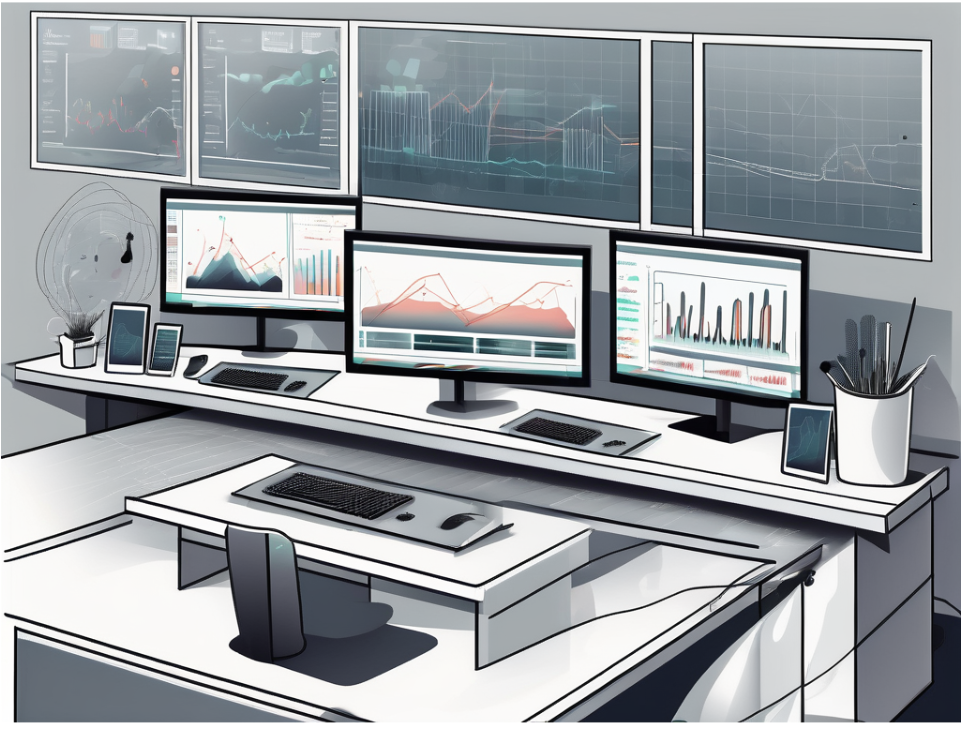The Role of Technology in Prop Firm Trading

Proprietary trading, also known as prop trading, refers to the practice of trading financial instruments using a firm's own money instead of clients' funds. It involves taking positions in various markets, including equities, commodities, currencies, and derivatives, often making the best prop firms for forex traders instrumental in the realm of prop trading with the aim of generating profits for the firm. Over the years, prop trading has evolved significantly, largely driven by advancements in technology.
Understanding Proprietary Trading
Before delving into the role of technology in prop firm trading, it is important to have a good grasp of what proprietary trading entails and the key characteristics of prop trading firms.
Definition and Overview of Proprietary Trading
Proprietary trading refers to the practice of trading securities, derivatives, or other financial instruments using a firm's own capital. This means that the firm is not acting as a broker or intermediary for clients but rather as a principal in the trades it executes. Prop trading can be conducted by large financial institutions, such as investment banks, as well as by specialized proprietary trading firms.
Proprietary traders are typically tasked with identifying and capitalizing on market inefficiencies, taking advantage of short-term price discrepancies or long-term trends. Unlike retail traders, who often rely on personal funds, proprietary traders have access to substantial capital provided by the firm.
Key Characteristics of Proprietary Trading Firms
Proprietary trading firms are distinctive entities that specialize in prop trading activities. These firms employ traders and utilize advanced technology to execute trades and manage risk effectively. Here are some key characteristics of prop trading firms:
The Intersection of Technology and Proprietary Trading
Technology has played a pivotal role in shaping the landscape of prop firm trading. From the early adoption of computerized trading to the rise of algorithmic trading and high-frequency trading, technological advancements have revolutionized the way prop traders execute trades and manage their portfolios.
The Evolution of Technology in Trading
The integration of technology into prop trading has a long history. In the early days, traders relied on manual processes and floor trading. However, the advent of electronic trading platforms transformed the industry, allowing for faster execution and increased market access.
With the proliferation of electronic communication networks (ECNs) and direct market access (DMA), traders gained the ability to execute trades electronically, bypassing traditional intermediaries. This reduced costs and improved efficiency, paving the way for further technological innovation.
Current Technological Tools in Proprietary Trading
Proprietary trading firms leverage an array of technological tools to gain a competitive edge in the markets. These tools include:
Impact of Technology on Trading Strategies
Technological advancements have not only changed the way prop firm traders execute trades but have also had a profound impact on trading strategies themselves.
Algorithmic Trading and High-Frequency Trading
Algorithmic trading, which involves the use of computer algorithms to execute trades based on pre-set criteria, has gained significant traction in prop trading. Algorithms can analyze large amounts of data and execute trades at high speeds, enabling traders to capitalize on even the smallest market fluctuations.
High-frequency trading (HFT) takes algorithmic trading to the next level, leveraging ultra-fast execution and low-latency trading infrastructure. HFT firms use sophisticated algorithms to execute a large number of trades within milliseconds, profiting from small price discrepancies.
Risk Management and Technology
Technology has greatly enhanced risk management practices in prop firm trading. Advanced risk management systems and real-time monitoring tools enable traders to identify and mitigate potential risks effectively.
Prop firms use sophisticated analytics and risk models to assess the risk associated with each trade. Real-time market data feeds and risk management dashboards provide traders with up-to-date information, allowing for informed decision-making.
The Future of Technology in Proprietary Trading
As technology continues to advance, prop firm trading is poised for further transformation. Emerging technologies are expected to shape the future landscape of prop trading, introducing new opportunities and challenges.
Emerging Technologies in Trading
Emerging technologies such as artificial intelligence (AI), blockchain, and quantum computing hold tremendous potential for prop trading. AI algorithms can analyze vast amounts of data, identify patterns, and generate trading signals, enhancing traders' decision-making capabilities.
Blockchain technology, known for its decentralized and transparent nature, could revolutionize aspects of trading, particularly in settlement and clearing processes. Smart contracts powered by blockchain can streamline trade settlement and reduce counterparty risks.
Predicted Technological Advancements in Proprietary Trading
Looking ahead, several technological advancements are predicted to shape the future of prop firm trading. These include:
Challenges and Opportunities in Technological Adoption
While technology presents numerous opportunities for prop firm trading, there are also challenges that firms must navigate when adopting new technologies.
Regulatory Considerations for Technological Implementation
Regulators play a crucial role in shaping the use of technology in prop trading. Firms must ensure that their technological solutions comply with relevant regulations and guidelines, particularly regarding data privacy, cybersecurity, and market fairness.
Regulatory frameworks need to keep pace with technological advancements to strike a balance between facilitating innovation and safeguarding market integrity.
The Role of Technology in Enhancing Trading Performance
Despite the challenges, the role of technology in enhancing trading performance cannot be understated. Proprietary trading firms that effectively leverage technology gain a competitive edge by improving execution speed, reducing costs, and enhancing risk management capabilities.
As technology continues to advance, prop firm trading will remain at the forefront of innovation, driving the evolution of the financial markets.
